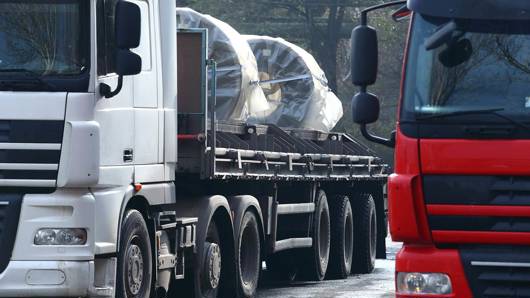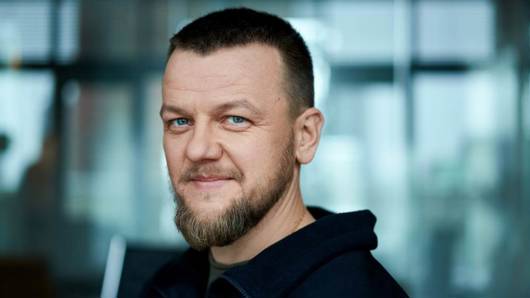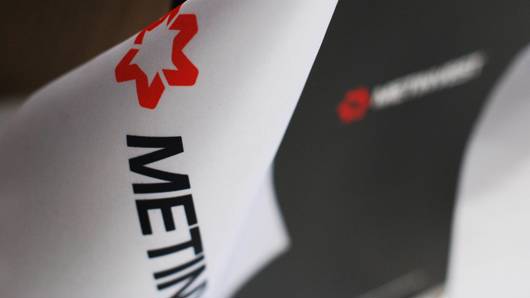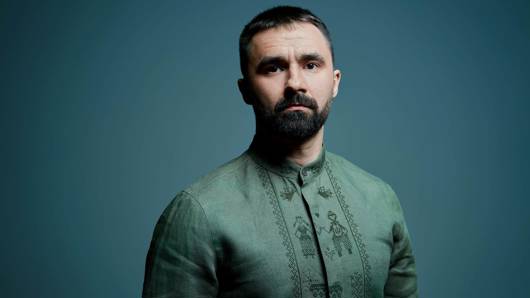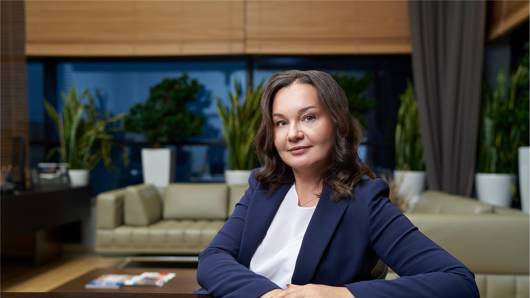In addition to the challenges related to the economic downturn during the war, logistical problems and domestic demand, businesses are facing another significant issue – the lack of staff. This is particularly acute for companies where the majority of employees are men of working age. While small businesses are more flexible, big businesses must often find a balance between preserving their production and contributing to the national economy and defence effort. Tetiana Petruk, Metinvest Group’s Chief Sustainability Officer, spoke about how the business is addressing the acute staff shortage, what the draft deferral situation looks like, whether women can master traditionally male-dominated professions, how long it takes to train new specialists and the experience of reintegrating veterans into the workforce.
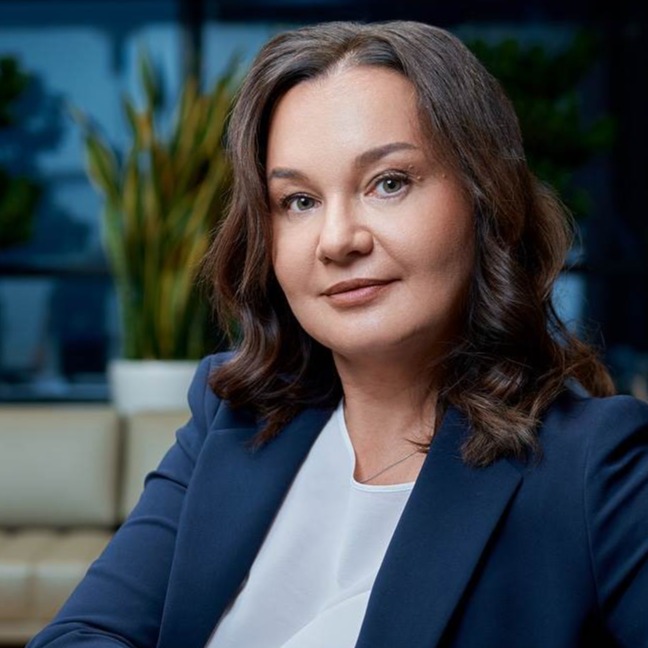
– How many Metinvest Group employees have joined the Ukrainian armed forces to defend Ukraine?
– For us, the war began in 2014. As of 1 March, the total number of our employees who had joined the Ukrainian armed forces was 9,300. Of those, 8,000 are currently in the Ukrainian armed forces, while 1,300 have already been demobilised during this period.
Tragically, a third of them have died in the war. In 2022, about a quarter resigned when a law was passed that provided for the retention of jobs for those mobilised, but without pay. More than 500 veterans have already returned to work.
Metinvest is probably the largest enterprise in Ukraine among private and state-owned companies in terms of the number of people mobilised to the armed forces.
This is understandable because our enterprises are located in Eastern Ukraine. We are in heavy industry, employing mainly men of conscription age, who are all officially employed.
The Group employs about 50,000 people, and every sixth one of them is mobilised. That is a lot.
– How does the Group support those who are currently on the front line?
– We support not only our employees, but also all the Ukrainian armed forces, with funding, equipment, machinery, steel, bulletproof vests, helmets and other essentials.
We also provide clothing, equipment and gear for our mobilised employees. We try to keep in touch with them if possible. We share information about what is happening in the Group. The main message we send to everyone is that we are waiting for you here, we need you, and we have jobs for you.
This year, we introduced a programme that offers psychological support for our employees in the armed forces and veterans. Our partner, a company that provides psychological support services, has hired professional military psychologists for its team, and we are working with families of veterans or mobilised employees. During their service in the Ukrainian armed forces, they should know that we are taking care of their families and children here at home, for example, helping them to get ready for the start of the school year, buying backpacks with stationery. We take care of their summer holidays.
Last year, together with the Foundation of Masha Yefrosinina, we created a large programme for women. We also organise rehabilitation for children.
– If every sixth person in the Group is mobilised, how do you solve the staff shortage issue?
– We primarily utilise our internal resources and retrain our employees so that they can acquire an additional profession, enabling them to work outside their main profession.
For example, we moved people from Kryvyi Rih to Pokrovsk. Currently, we are trying to relocate employees from Pokrovsk to Zaporizhzhia, where the situation is somewhat calmer.
We are also retraining female staff. We already have our first brigade of 10 women whom we retrained in Pokrovsk, and they are working as underground machine operators. These are positions from which women used to be taken to the surface, and now we are returning them to underground work.
But if anyone thinks that women are queuing up at the HR department to work in these positions, this is not the case. First, even if we find women internally in the Group, it takes four to nine months to acquire another profession, which traditionally has been a mostly male-dominated profession.
Second, it is hard work. That is why it is not true when people say that women are massively taking up these traditionally male-dominated professions.
Indeed, recently, women have been responding more to job offers. Why? Because some men are frightened of official employment because it would require them to go through the military registration and enlistment office.
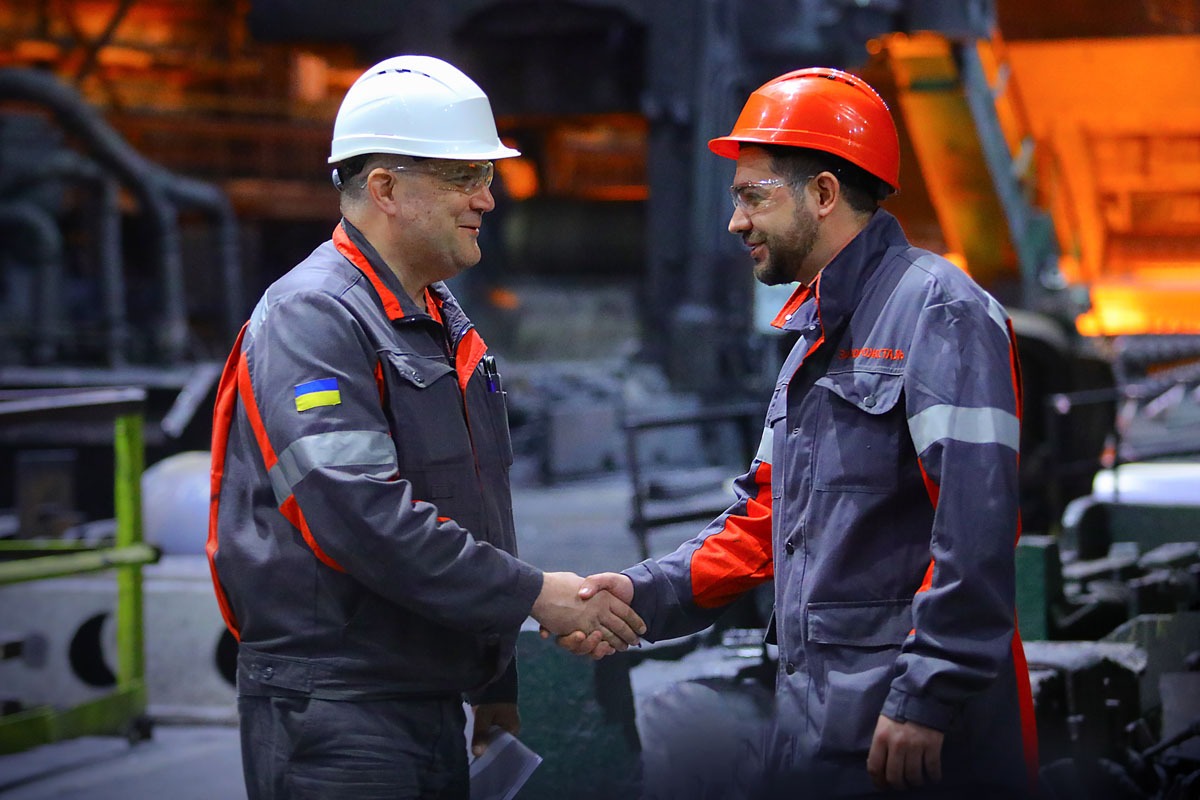
– Can we discuss the staff shortage in the industry now and how it can affect the industry and the country’s economy in general?
– As the largest employer in the industry, we are already experiencing a staff shortage. If our enterprises were located, for example, in Lviv or the surrounding region, I would probably find people there. But they are 30-40 kilometres from the front line, where most of the population has left.
And those who stayed are more likely to go to work in retail, even for lower pay, rather than at an open-hearth furnace or mine due to the difficult working conditions.
The most common reason people quit is not money, but safety in the region. And coming back to the question of the possibility of hiring women — perhaps a woman would go to work for an enterprise, but where would she leave her children?
For example, in Zaporizhzhia or Pokrovsk, due to the constant shelling, schools only operate online. Someone must take care of the child if the air raid alert begins.
If the infrastructure in the region was functional, if there were schools with bomb shelters, the situation would be different.
– What other ways do you employ to retain staff at your enterprises?
– We rely primarily on ourselves. We probably have the best employee motivation system in the industry. We have introduced an additional bonus for team performance at all of our enterprises.
The bonus is paid on a monthly basis and encourages employees to work efficiently and earn additional money. For manufacturing enterprises, this is usually based on the volume and quality of products, for coke producers it is the preservation of furnace stock, and for maintenance workers it is the absence of downtime.
It unites the team and sends a message that we are all a single unit and work for the sake of our Group, the economy and victory.
– How could the government help to restore human resources?
– I can say that people will start returning to the region when there will be infrastructure, a place to go back to, working schools, bomb shelters, accommodations and houses being restored. The state should take care of bringing people back to Ukraine. And if there are people, industry, enterprises, then everything else will be rebuilt.
Such programmes exist, the government is working on them, but people need to have a desire to return. Let’s face the truth. Two years have passed since people left, and children went to schools in the countries where they live. And now, to bring a child back to Ukraine, we need the education system to be ready for this.
– What is the situation with employee draft deferrals and what should be changed?
– Draft deferrals are ineffective because every sixth person in an enterprise cannot be mobilised. Then what? Who will work?
It is necessary to analyse the economic feasibility and efficiency, consider how much the company pays in taxes, how it supports the country and the armed forces, how many jobs it creates, as well as the region in which it is located.
You can’t just look at the number of people and give a percentage. We can currently only defer 50% of our employees from the draft. We have utilised this quota at almost all of our enterprises.
The issue must be addressed comprehensively, considering the specifics of the industry. Our Group cannot employ only women because it operates in the metals and mining industry.
While it might be acceptable for service enterprises to have 50% of their employees deferred from the draft, production enterprises should have a higher percentage. Ultimately, there needs to be a dialogue between the government and business to find common ground.
Every business understands the importance of replenishing the Ukrainian armed forces, which is why Metinvest is already one of the leaders among Ukrainian companies in terms of the number of mobilised employees. Employee draft deferrals are an important issue for any large company that needs to strike a balance between replenishing the armed forces and preserving production and tax payments.
The current draft deferral system is inflexible. It does not allow us to attract new employees. Potential employees are opting to take unofficial jobs outside the company.
This is because of the possibility of being conscripted at the employment stage, as there is no possibility for companies to defer additional employees beyond the biannual applications. This bureaucratic issue could be solved by allowing companies to additionally defer a certain percentage of their staff throughout the year, thus solving the problem of staff shortages.
– Which specialists are most in demand in the market now? Can women work in these positions?
– It is worth noting that Metinvest’s overall staff shortage from the pre-war level is now more than 4,000 employees. A significant proportion of the shortage is made up of traditionally male-dominated occupations with very difficult physical working conditions. Technological and maintenance professions, such as blast furnace operator, blast furnace plumber, coke oven operator, coke oven gas operator, tunneller, slagger, casting machine operator, coke oven loader, mechanic, electrician, electrical fitter, electrical mechanic, etc.
Before the war, the law stated that these positions could be held 100% by men only. They have always been in short supply at our enterprises due to the working conditions.
– How long does it usually take to train a new specialist?
– If we talk about the scarcest specialties, the initial qualification takes three to six months, while more senior positions take one to three years.
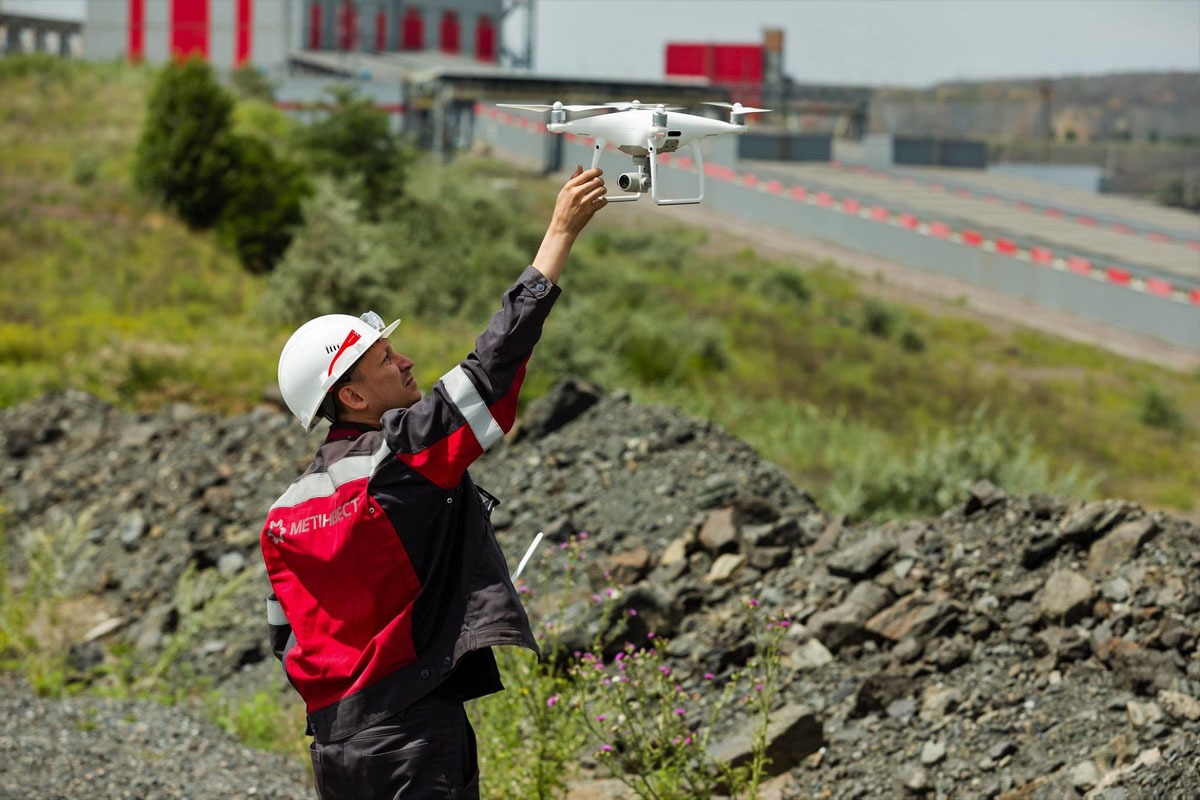
– To what extent does the staff shortage affect the industry?
– For Metinvest Group, human capital is our number-one issue right now. The shortage of personnel is one of the main challenges facing the business at the moment, along with logistics, rebuilding production during the war and military risks. We lack the people to ramp up production in the steel segment and ore mining. We cannot even reach 50-60% of the pre-war production at some assets. The reason is people. This is a common problem for large businesses operating in Ukraine.
Especially in regions close to the front line. While the export-oriented industry has now managed to rebuild its logistics processes after the launch of the Black Sea corridor, the staff issue has not disappeared. Some of the staff were mobilised into the Ukrainian armed forces, and many others resigned and moved with their families either to Europe or to safer regions of Ukraine.
– Is it possible to compensate for the staff shortage through those returning from the front line? Tell us about the Group’s experience in veterans’ integration.
– Of the more than 500 people who have returned from the front, about 85% are working in their previous positions. If a person returns from the front line, they are as much a member of our team as anyone else. But we understand that it takes a bit more time and effort for them to adapt.
We assist with treatment, rehabilitation and prosthetics, if necessary. We have introduced additional psychological screenings.
We have developed and implemented an entire ecosystem for reintegrating veterans into civilian life. Some companies have a separate area where they work with veterans. We don’t have a separate area; rather, we adapt all our business processes to the new realities. We have four main principles on which our programme is based.
The first is the responsibility of every employee in the Group. Veterans should not be relegated to a separate department at the Group. This is the task of all Metinvest employees, from the CEO to a shop mechanic.
The second is priority. Internal veterans are our DNA; they have proven professional experience, qualifications and skills. Following a long-term absence, they may lose or forget some of their skills and abilities, or no longer be able to perform their pre-war jobs for medical reasons — but it is important for us to preserve our human resources as much as possible.
The third is consistency. This is not a one-off event where we do something, honour them, hand out brochures and then move on. This is an area that we will be constantly working on.
The fourth is impartiality. We do not take different approaches to veterans and non-veterans. We have heroes who return from the front line, and we also have heroes who work every day at the open-hearth or blast furnace, in the quarry or in the mine. That is why the remuneration and non-financial reward system, evaluation of personnel and positions remain the same for all employees. Honouring and supporting veterans should be organised in a way that does not divide but unites teams.






